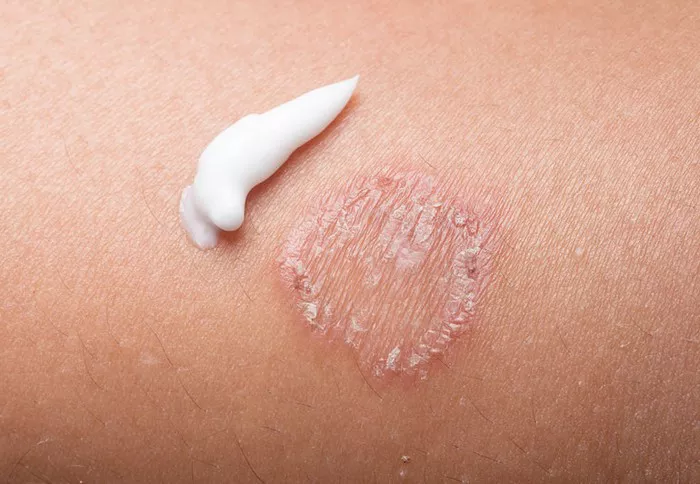Eczema, a chronic skin condition characterized by inflammation and irritation, affects millions of individuals worldwide. Those who battle eczema often face a myriad of challenges in managing their symptoms. Among the essential considerations in their skincare regimen is the choice of soap. While seemingly mundane, selecting the appropriate soap can significantly impact the severity and frequency of eczema flare-ups. In this comprehensive guide, we delve into the intricacies of eczema care, exploring the types of soap best suited for this condition and offering invaluable insights for individuals seeking relief.
Understanding Eczema: A Complex Skin Disorder
Before delving into soap selection, it is imperative to grasp the nature of eczema. Eczema encompasses several skin conditions, with atopic dermatitis being the most prevalent form. Atopic dermatitis manifests as dry, itchy skin often accompanied by redness, swelling, and the formation of small, fluid-filled blisters. While the exact cause of eczema remains elusive, it is widely believed to result from a combination of genetic and environmental factors. Triggers such as allergens, irritants, stress, and climate can exacerbate symptoms, making management challenging for affected individuals.
The Role of Soap in Eczema Management
Soap serves as a fundamental component of personal hygiene routines, aiding in the removal of dirt, oils, and microbes from the skin’s surface. However, for individuals with eczema, the wrong choice of soap can aggravate symptoms, leading to increased dryness, itching, and inflammation. The ideal soap for eczema sufferers should cleanse effectively without stripping the skin of its natural oils or causing further irritation.
Key Considerations When Choosing Eczema-Friendly Soap
1. Ingredients: Opt for soaps formulated with gentle, non-irritating ingredients. Look for products labeled as hypoallergenic, fragrance-free, and devoid of harsh chemicals such as sulfates, parabens, and dyes. Ingredients like glycerin, shea butter, and oatmeal possess moisturizing properties that can benefit eczema-prone skin.
2. pH Balance: The skin’s natural pH typically ranges between 4.5 and 5.5, making it slightly acidic. Using a soap with a similar pH helps maintain the skin’s protective barrier and prevents excessive dryness. Look for pH-balanced or mild cleansers specifically designed for sensitive skin.
3. Moisturizing Properties: Eczema is characterized by impaired skin barrier function, leading to increased moisture loss. Choose soap infused with moisturizing agents such as ceramides, hyaluronic acid, or coconut oil to help replenish the skin’s moisture content and enhance hydration.
4. Avoidance of Common Irritants: Certain ingredients commonly found in soaps can exacerbate eczema symptoms. These include fragrances, preservatives, and harsh surfactants. Opt for unscented or fragrance-free options to minimize the risk of irritation.
5. Dermatologist Recommendations: Consulting with a dermatologist is invaluable when navigating eczema management. A dermatologist can provide personalized recommendations based on the individual’s specific skin condition and triggers.
Top Soap Options for Eczema Relief
1. Cetaphil Restoraderm Skin Restoring Body Wash: Formulated with gentle surfactants and ceramides, this soap-free cleanser effectively cleanses while maintaining the skin’s moisture barrier.
2. Aveeno Daily Moisturizing Body Wash: Enriched with colloidal oatmeal, this soap-free formula soothes and moisturizes dry, itchy skin, making it ideal for individuals with eczema or sensitive skin.
3. Dove Sensitive Skin Beauty Bar: Hypoallergenic and fragrance-free, this classic beauty bar is gentle on sensitive skin, leaving it feeling clean and moisturized without stripping away essential oils.
4. Vanicream Cleansing Bar: Free of dyes, fragrances, and harsh chemicals, this gentle cleansing bar is suitable for even the most sensitive skin types, including those with eczema or psoriasis.
5. Eucerin Advanced Cleansing Body and Face Cleanser: Developed with dermatologists, this non-comedogenic cleanser gently removes impurities while maintaining the skin’s natural moisture balance, making it suitable for daily use on eczema-prone skin.
Conclusion
When it comes to managing eczema, every aspect of skincare, including soap selection, plays a crucial role. By choosing gentle, moisturizing cleansers formulated with eczema-friendly ingredients, individuals can effectively cleanse their skin without exacerbating symptoms. Additionally, consulting with a dermatologist can provide personalized recommendations tailored to one’s specific needs and triggers. With the right approach to skincare and soap selection, individuals can alleviate discomfort and achieve healthier, more radiant skin despite living with eczema.
























